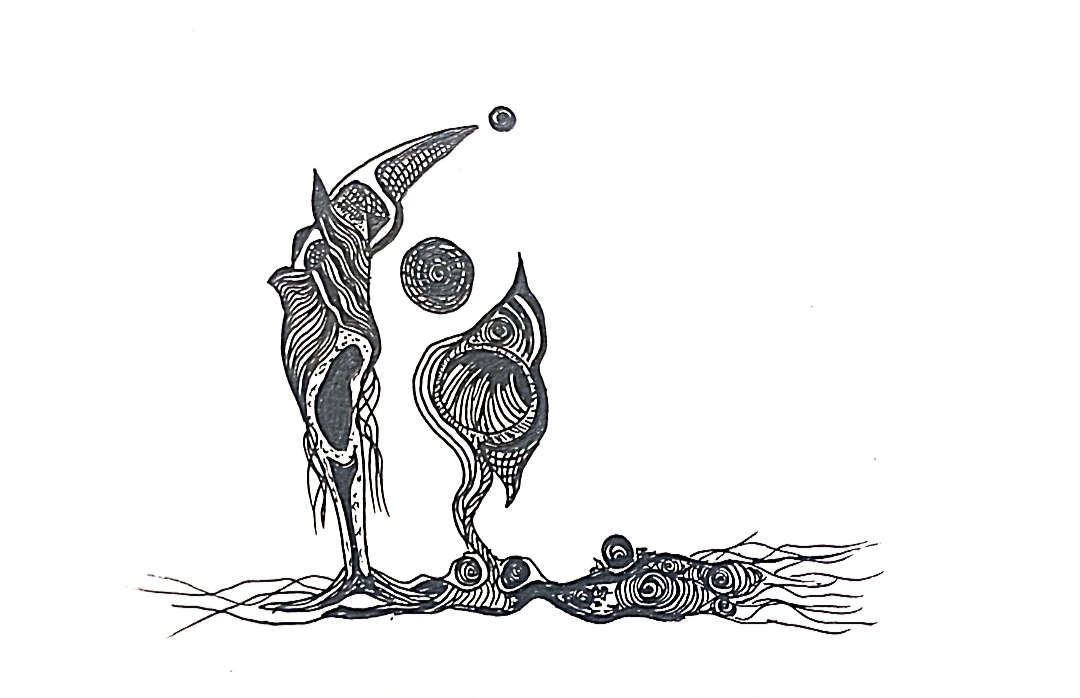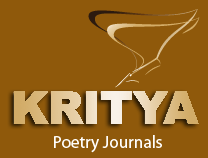
In the Name of Poetry
Realms of Experience in Translating Sri Sri’s Poems
Experience in Translating Sri Sri’s Poems
Sri Sri, a great poet in Telugu, with his poetic power commanded, saved, inspired Telugu poetry for over two decades. In the dark midnight when the whole world is asleep and is dreaming a horrible dream and pathetically muttering in sleep Sri Sri is the one who saw the arrival of a new dawn and welcomed it. Poetry is not the love story of kings and queens; poetry is not the balance sheet of the conquest but poetry is about revealing the owes and sorrows in the common man’s life and uprooting  them totally. This is the belief of the great poet Sri Sri. He is the herald for progressive poetry in Telugu. He thoroughly understood political, economical and social changes that happened not only in India but across the world. These changes brought significant change not only on the individual but also in his poetry. Capitalistic tendency and civilization gradually increased its grip on the people in the world. Mechanical life and ultramodern civilization brought a radical change in the life style of people. Like T.S.Eliot Sri Sri too presented the dull, drab modern life in his poems.
them totally. This is the belief of the great poet Sri Sri. He is the herald for progressive poetry in Telugu. He thoroughly understood political, economical and social changes that happened not only in India but across the world. These changes brought significant change not only on the individual but also in his poetry. Capitalistic tendency and civilization gradually increased its grip on the people in the world. Mechanical life and ultramodern civilization brought a radical change in the life style of people. Like T.S.Eliot Sri Sri too presented the dull, drab modern life in his poems.
In the poem Sandhya Samasyalu translated as Dusk Riddles the poet portrays the social imbalances that arose due to the British rule in India. Due to colonial politics the middle class in India faced many problems. These problems did not arise naturally. They were hit by these problems:
That evening…..
In Rocksy Norma Sharer,
In Brodway Kanchanamala!
The riddle where to go hit the student!
In Udipi SriKrishna Vilas—
A glance over there presents Badam halwa,
A glance over here presents Semiya Idly!
To choose between the two is a riddle
To an employee!
— Dusk Riddles
Due to fresh unleash of capitalistic principles and civilization a new class developed in India according to the poet. They were stranded at the cross roads. They experienced Hamlet’s hesitation and cogitation. Cinema has become a piece of entertainment for the middle class. But to choose between native movie and videshi movie is a problem to a student. Having a tiffin at a hotel was a sign of civilization then. But to choose an item from the menu is very tantalizing. For an employee to have both the dishes is impossible and to choose one is like solving a riddle.
For a family man choosing between life an death itself is a riddle. Debts
made his life heavy. To repay a debt he made many debts. At last he saw only a sea of debts. As he cannot escape from debtors; he cannot satisfy the hungry stomachs of his kith and kin; so he decided to put an end to his life in the middle. He too faced with the riddle of choosing between two options: to hang and die or to plunge in the sea:
That evening …..
A glance over here
Presents debtors,
A glance over there
Presents children’s hunger!
To hang and die,
To plunge in the sea—
A riddle crystallized
To a family man!
The poet with small words very powerfully presented the dichotomy in the student, employee and a middleclass family man. While translating the poem we gave importance to the meaning, feeling and even to the length of the sentence.
Translating Sri Sri’s poems is really an experience. We translated Sri Sri’s Rukkulu as Hymns in English. In this poem the writer lists out the subjects and articles that inspire the poet to write poetry. For an ordinary human being and for enthusiastic fresh poets feel that grand things and grand issues are needed to write poetry. The poet advises that:
“ A puppy, a match and a soap cake–
scorn none of these!
All full of matters for poetry!”
By this the poet wants to say that the common things make our daily life can make a good piece of poem. Mere listing of the objects brings monotony and ‘Hymns’ will lose poetic quality. Next the poet mentions common things like Bread-piece, plantain- peel, wooden plank—look at the poet and throws a challenge to discover their depth:
“Bread-piece, plantain- peel, wooden plank–
They always look at you!
Urge you to find their depths!”
Here the poet is poetic. Writing poetry on these subjects one needs poetic inspiration. He assures that ordinary things like door- latch, camphor-plate and horse-bridle can be poetic subjects. First the poet must decide the ‘rasa’ then he can unravel the beauties in the objects. For having these as subject matter for poetry one must have the power to see and the power to capture his feelings in words:
“If you have eyes, see,
If you have words, write!”
With all his experience as man in this world and as a poet he sums up his image of the world and as:
“The world is a lotus array!”
Sri Sri himself was a great inspiration to many new and upcoming poets in Andhra Pradesh. Discarding all the rules and metre and rhyme he created his own world of ‘free verse poetry.’ His alliteration, choice of diction, combination of Sanskrit and Telugu words appears to be simple. So many poets tried their hand at poetry imitating Sri Sri. But many failed. They didn’t get satisfaction over their own poetry. Sensing this Sri Sri tried to console them in saying:
“Poetry is an unquenchable thirst!”
In Telugu version Sri Sri wrote:
“Kukkapilla, aggipulla, sabbubilla,”
Sri Sri chose these words taking care of the ending ‘la’. When uttered by anyone they can feel the rhyme and rhythm in it. Even these three words when uttered we can observe that they have the same length and this adds to the beauty of the poem. If we can write the Telugu words in English as Kukkapilla, aggipulla, sabbubilla we can bring the beauty of the sound . But it is unintelligible to non- Telugu readers. We cannot translate this beauty into English. There are no articles in Telugu. When we say ‘Kukkapilla’—it is singular and it also conveys the meaning ‘any’ and ‘all’. So in English version we added article ‘a’:
“A puppy, a match and a soap cake–”
In order to retain the native flavour, we translated ‘rasanirdesam’ as ‘show a rasa’. Aestheticians used this word and the theories of rasa, dhvani and vakrokti are translated into English. So we retained the word ‘rasa’ in our translation. If we observe the words talupu-gollem, haarati-pallem and gurrapu- kallem –the repetition of the sound ‘lla’ in the second part of each word is rhythmical. In our translation we tried to select the words with ‘la’ in the later part of the phrases so that the translation will be nearer to Telugu one:
“ Door- latch, camphor- plate, horse-bridle”
These words came to us casually, we never do it consciously. While translating the lines: ‘Kallunte chusi, vakkunte vrasi—‘we faced the problem of transliteration. The first sentence is easy to translate. So we did it one blow as—“ If you have eyes, see ” but to translate the word ‘vakku’ into English is not easy. ‘vakku’ means ‘word’ and ‘speech’ also. Of the two we felt that ‘word ’ is more appropriate here. The poet’s intension is ‘if you have eyes that can see properly’ and ‘sense the beauty’ in ordinary things and has the capacity of choosing words for proper feelings and expressions you can write poetry. So we translated the sentence as: “If you have words, write!”
The next poem we translated is ‘Vadu’ as He in English. The poet shows two kinds of people; one the labourer and the other the land lord. The laborers complain their hardships and the land lord pronounces the solution. …………and it is suggested through the sound / s /. The labourer and his nature of work is suggested through the sound / l / through out the poem. We tried to maintain the length and rhythm of the words in the poem. In Telugu the expression ‘muddaki kuuda dooram chesaadu ’ is translated as ‘kept aloof even from food’ . ‘Mudda’ literally means ‘ball of rice’, ‘a morsel of rice’ and ‘hand full of rice’. But poet’s intended meaning is they were denied of their daily meal. So we translated it as ‘kept aloof even from food’.
In Telugu the usage ‘joollu’ means two, and the village folk use this word for ‘chappals’. There is a usage in Telugu—when one loses his temper he says—‘cheppu teesuku tanta’—can be translated into ‘I’ll hit you with chappal’. First we translated it as ‘struck us with his shoes’ but to bring in native flavour we translated it a ‘struck us with his chappal’.
From first to the last line we maintained rhyme and rhythm: ‘gathered and hoarded; somewhere someone; sunrise to sunset; toil and moil; blocks and brutes’ and so on. Now go through the poem and feel the pulse, the sense and sensitivity the poet intends to convey:
HE
This lovely collection of things
Gathered and hoarded by all of us together
Somewhere someone alone comes
And steals it away,
Seeing him, ‘injustice, injustice’ we shout
Bear your fate, he replies.
From sunrise to sunset
You who toil and moil like bulls
Are treated as blocks and brutes by him;
And kept aloof even from food.
“Horrible, atrocious” if you exclaim–
‘Custom! No over stepping’, he replies.
When it was beyond endurance
We threw down our tools–
And said, ‘we can work no longer,
We are dying from hunger
Show us sustenance to life’–
He shuts our mouths, struck us with his shoes
And said, ‘violence for violence’.
We felt translation as an exercise that sharpens our bilingual efficiency and also our creative skills.
P. Gopi Chand &P. Naga Suseela
Dept. of English; J.K.C.College,
Guntur- 522 006; A. P.
E-mail: pnsjkc_e@yahoo.com
gopi_paruchuri@yahoo.com

